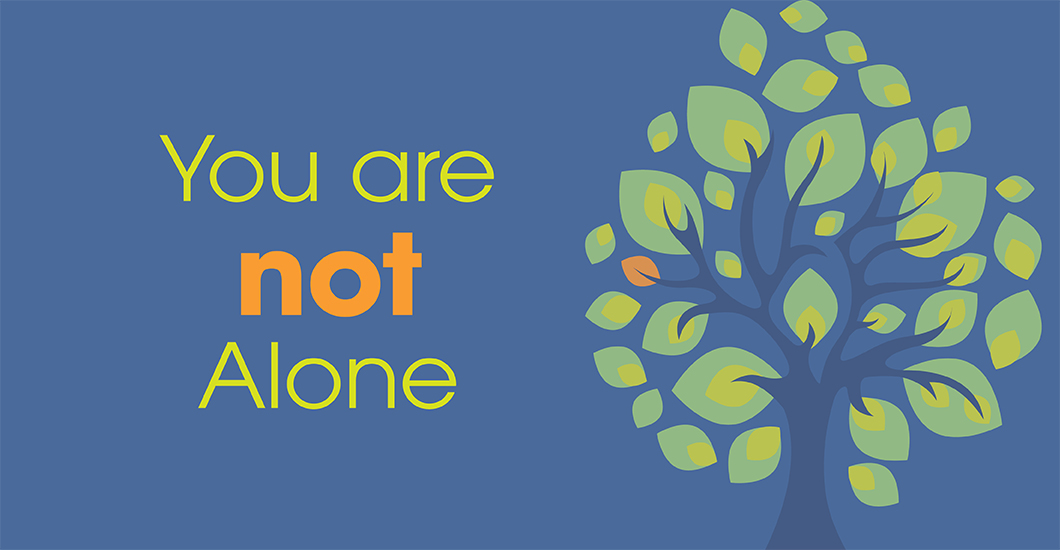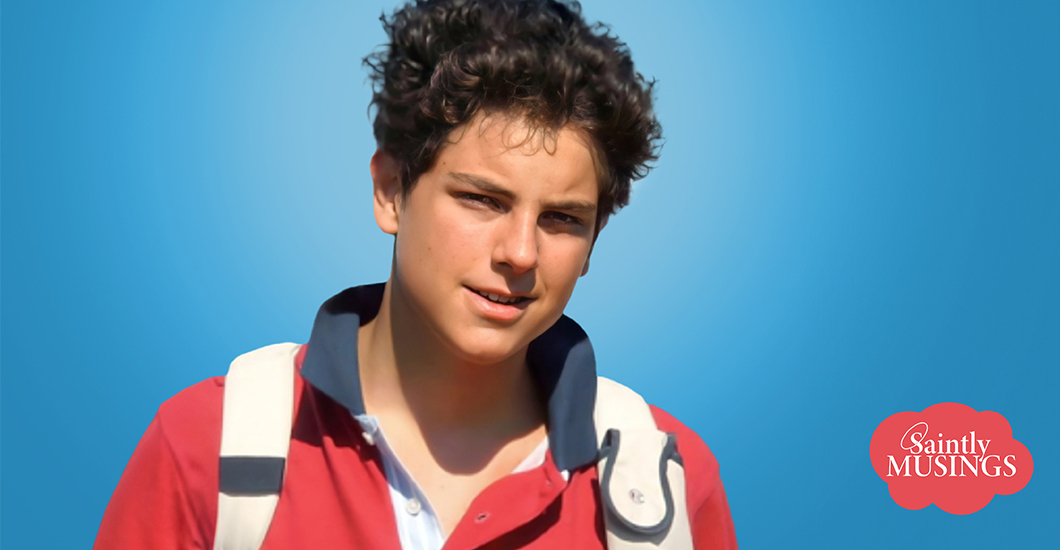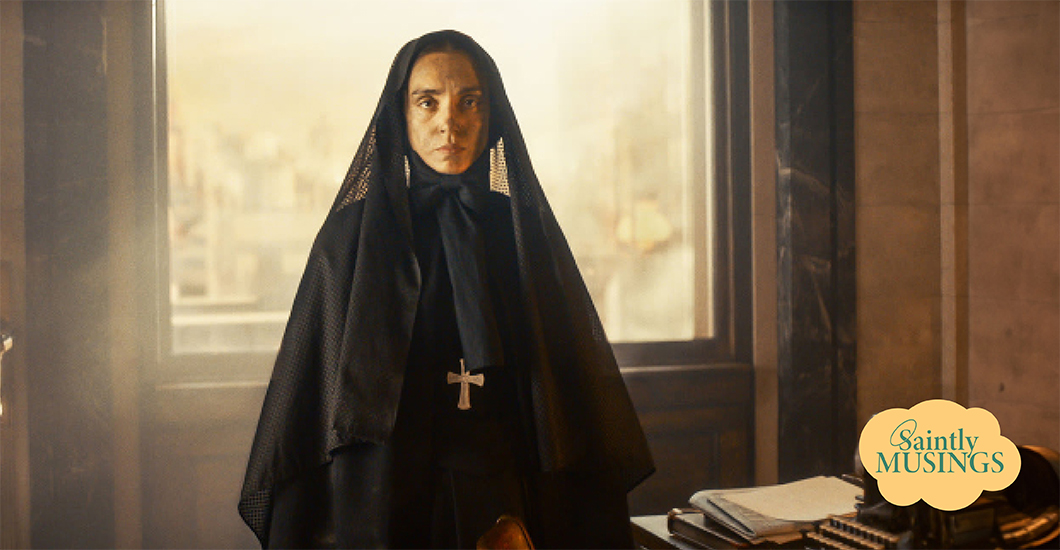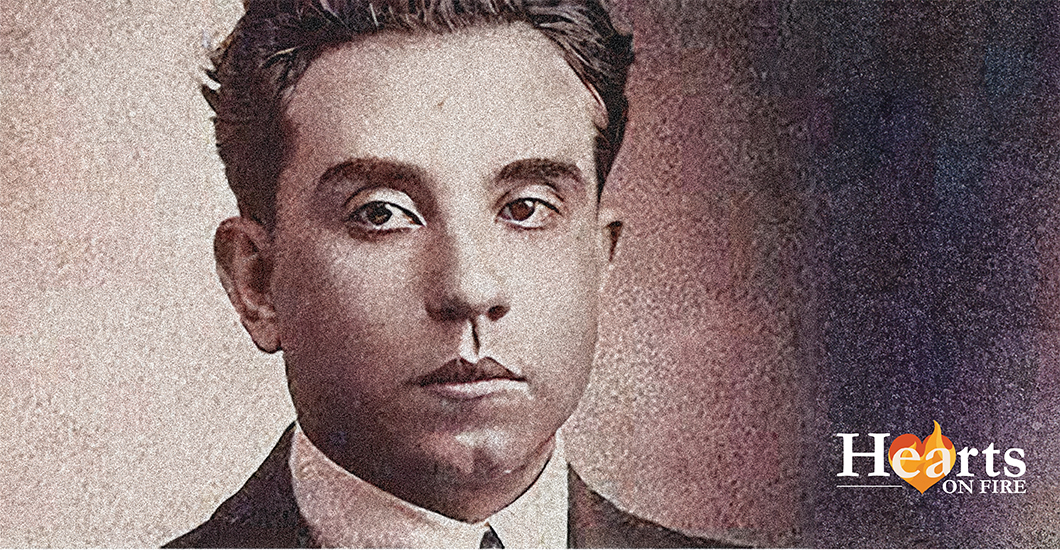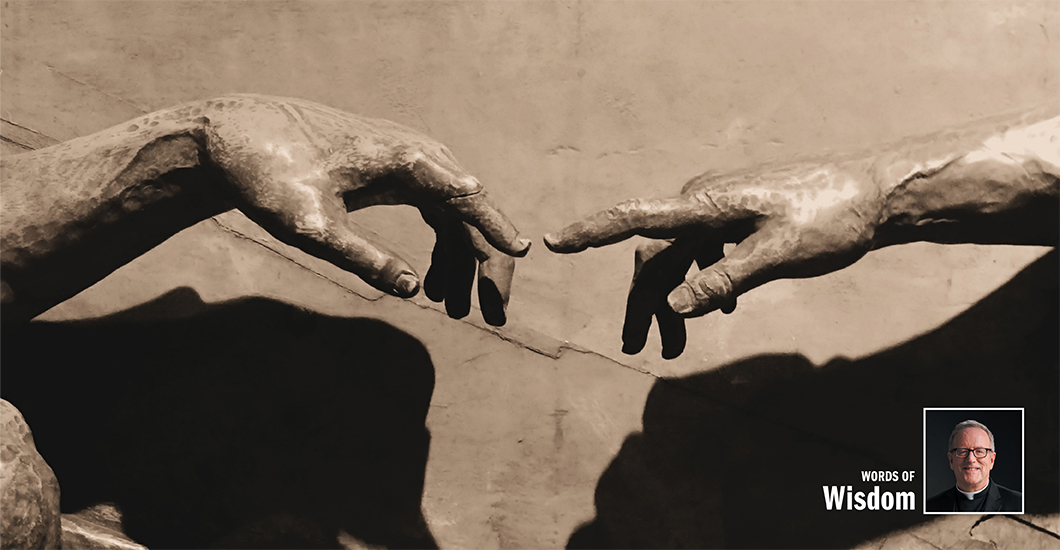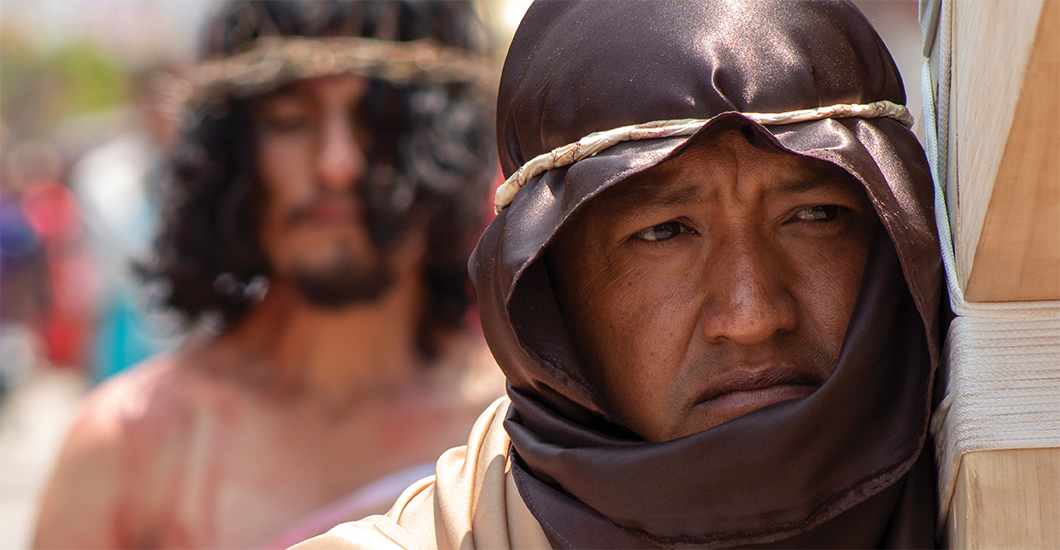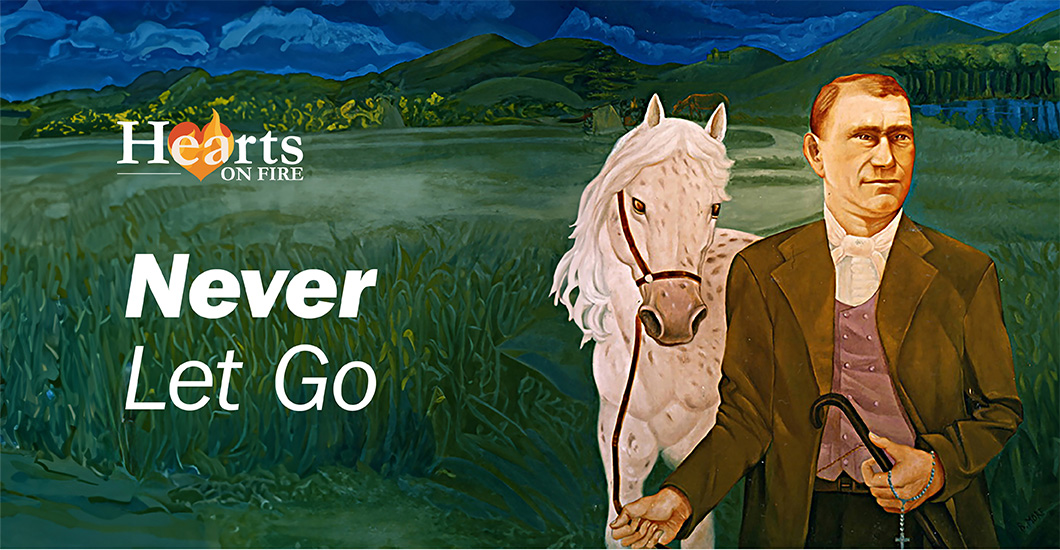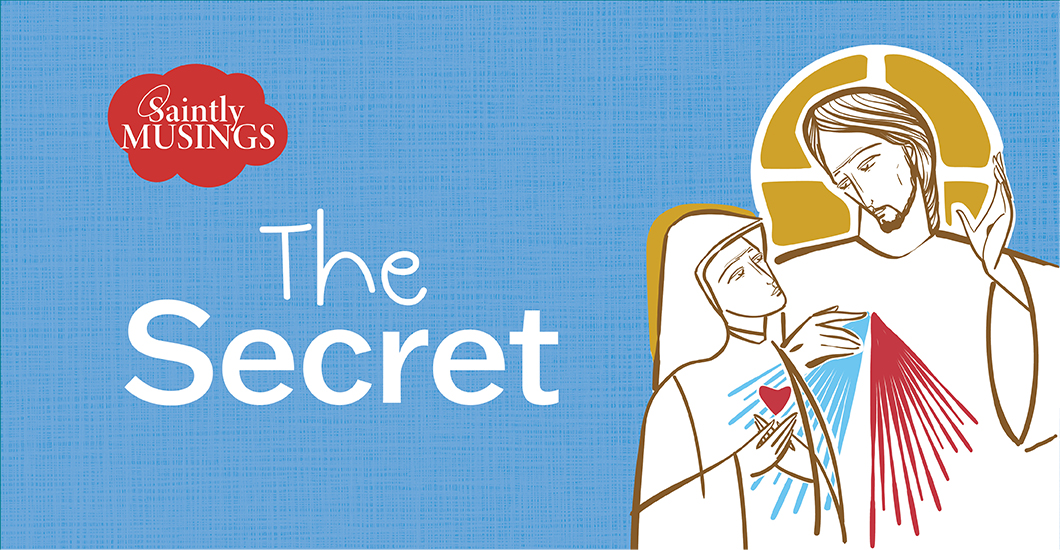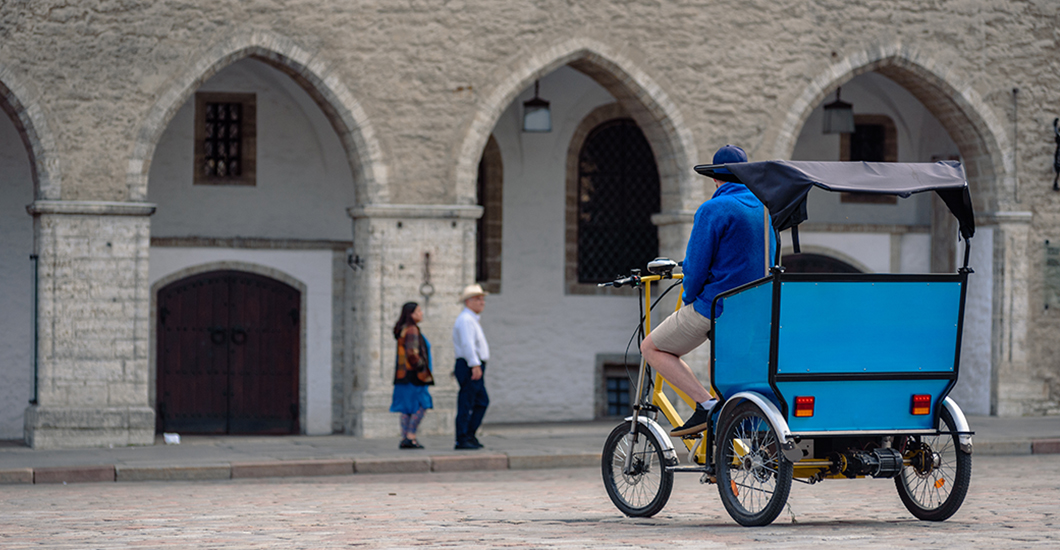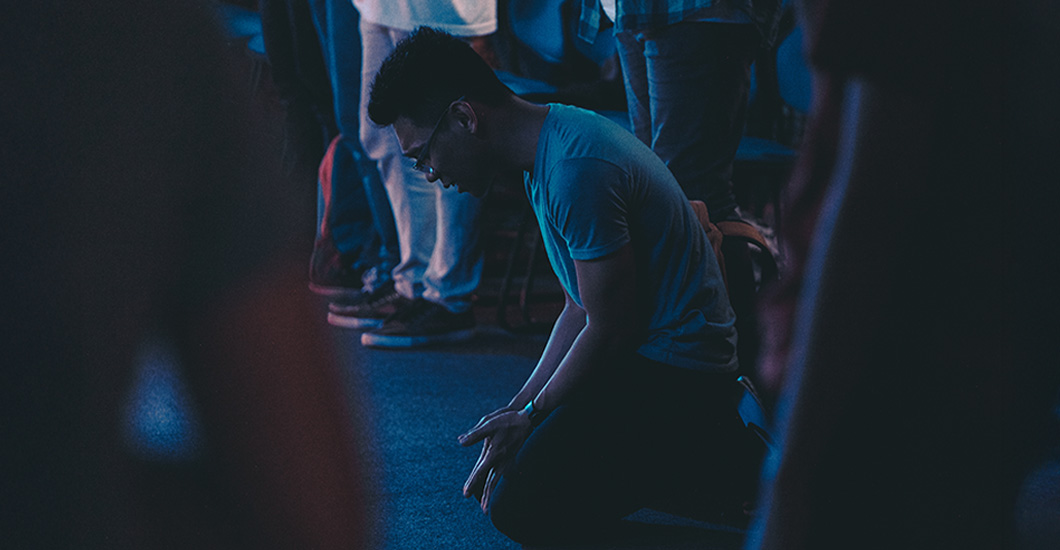Trending Articles
You are Not Alone
In times of trouble, have you ever thought ‘if only I had help at hand,’ not fully knowing that you do really have a personal cohort to help you out?
My daughter’s been asking me why I don’t look like the typical Pole if I am 100% Polish. I never had a good answer until this week, when I learned that some of my ancestors are Goral highlanders.
Goral highlanders live in the mountains along the southern border of Poland. They are known for their tenacity, love of freedom, and distinct dress, culture, and music. At this moment, a particular Goral folk song keeps playing over and over in my heart, so much so that I shared with my husband that it is, in fact, calling me back to my home country. Learning that I have Goral ancestry has indeed made my heart soar!
The Search for Roots
I do believe that there is some desire within each of us to get in touch with our roots. That explains the many genealogy sites and DNA-testing businesses that have popped up recently. Why is that?
Perhaps it stems from a need to know that we are part of something greater than ourselves. We long for meaning and connection with those who have gone before us. Discovering our ancestry shows we’re part of a much deeper story.
Not only that, but knowing our ancestral roots gives us a sense of identity and solidarity. We all came from somewhere, we belong somewhere, and we are on a journey together.
Reflecting on this made me realize how important it is to discover our spiritual heritage, not just our physical one. After all, we humans are body and soul, flesh and spirit. We would greatly benefit from getting to know the Saints who’ve gone before us. Not only should we learn their stories, but we should also get acquainted with them.
Finding Connection
I have to admit, I haven’t always been very good at the ask-for-the-intercession-of-a-saint practice. This is certainly a new addition to my prayer routine. What woke me up to this reality was this advice from Saint Philip Neri: “The best medicine against spiritual dryness is to place ourselves like beggars in the presence of God and the Saints. And to go like a beggar from one to another and to ask for spiritual alms with the same insistence as a poor man on the street would ask for alms.”
The first step is to get to know who the Saints are. There are plenty of good resources online. Another way is to read the Bible. There are powerful intercessors in both the Old and New Testaments, and you may relate to one more than the other. Plus, there are countless books on the Saints and their writings. Pray for guidance, and God will lead you to your personal cohort of intercessors.
For instance, I have asked Saint David the King for help with my music ministry. Saint Joseph is my go-to when interceding for my husband and for job discernment. I ask for help from Saint John Paul II, Saint Peter, and Saint Pius X when I feel called to pray for the Church. I pray for moms through the intercession of Saint Anne and Saint Monica. When praying for vocations, I sometimes call on Saint Therese and Saint Padre Pio.
The list goes on. Blessed Carlo Acutis is my go-to for tech problems. Saint Jacinta and Saint Francisco teach me about prayer and how to offer up sacrifices better. Saint John the Evangelist helps me grow in contemplation. And I would be negligent to not mention that I often ask for the intercession of my grandparents. They prayed for me while they were on earth, and I know they are praying for me in eternal life.
But my all-time favorite intercessor has always been our dearly beloved Blessed Mother.
Just a Prayer Away
Who we spend time with matters. It shapes us into who we become. There truly is a “cloud of witnesses” surrounding us that we are connected to in a real way (Hebrews 12:1). Let us strive to get to know them better. We can send up simple, heart-felt prayers like, “Saint ____, I would like to get to know you better. Please help me.”
We are not meant to do-it-alone in this faith journey. We are being saved as a people group, as the Body of Christ. By staying connected to the Saints, we find both a compass that provides direction and concrete help to travel safely to our Heavenly homeland.
May the Holy Spirit help us get in touch with our spiritual roots so that we can grow into Saints and spend eternity as one glorious family of God!
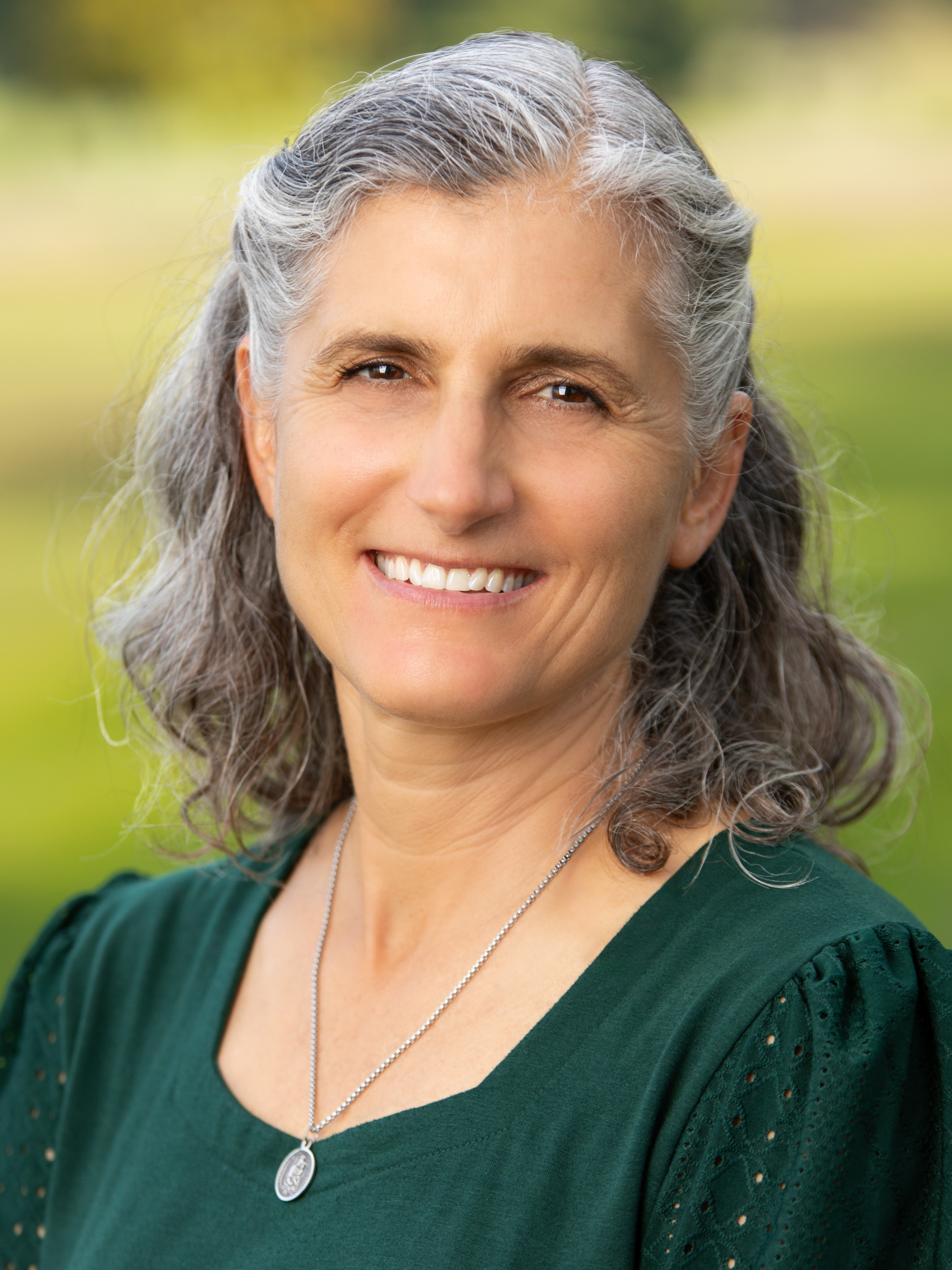
Denise Jasek has served the Catholic Church for many years. She is currently a music minister, mom of five mostly grown children, and lives in Ohio with her beloved husband.
Related Articles
When Andrea Acutis arranged a pilgrimage to Jerusalem, he thought that his son would be excited. Carlo was keen on going to daily Mass and reciting his prayers, so his reply came as a surprise: "I prefer to stay in Milan … Since Jesus remains with us always, in the Consecrated Host, what need is there to make a pilgrimage to Jerusalem to visit the places where He lived 2000 years ago? Instead, tabernacles ought to be visited with the same devotion!" Andrea was struck by this great devotion that his son cherished for the Eucharist. Carlo was born in 1991, the year the World Wide Web was invented. The little genius walked when he was just four months old, and started reading and writing at the age of three. The world would’ve looked at his intellect and dreamt of a bright future but the Divine had different plans. Combining his love for the Eucharist and technology, he left the world a great legacy of a record of Eucharistic miracles from across the world. He began the collection in 2002 when he was just 11 years old and completed it a year before he succumbed to leukemia. This young computer geek, at such a young age, even built a website (carloacutis.com), a lasting record, with all the collected information. The Eucharistic exhibition he pioneered was held in five continents. Ever since, many miracles have been reported. On his website, he has written the lasting mission of his life on Earth: "The more Eucharist we receive, the more we will become like Jesus, so that on this Earth, we will have a foretaste of Heaven." This Italian teenage designer and computer whiz is soon to become Saint Carlo Acutis. Widely known as the first millennial patron of the internet, Blessed Carlo continues to draw millions of youngsters to the love of Jesus in the Eucharist.
By: Shalom Tidings
MoreMy new hero is Mother Alfred Moes. I realize that she is not a household name, even among Catholics, but she should be. She came on my radar screen only after I became the Bishop of the Diocese of Winona-Rochester, where Mother Alfred did most of her work and where she lies buried. Hers is a story of remarkable courage, faith, perseverance, and sheer moxie. Trust me, once you take in the details of her adventures, you will be put in mind of a number of other gritty Catholic Mothers: Cabrini, Teresa, Drexel, and Angelica, to name a few. Mother Alfred was born Maria Catherine Moes in Luxembourg in 1828. As a young girl, she became fascinated by the possibility of doing missionary work among the native peoples of North America. Accordingly, she journeyed with her sister to the New World in 1851. First, she joined the School Sisters of Notre Dame in Milwaukee but then transferred to the Holy Cross Sisters in La Porte, Indiana, a group associated with Father Sorin, CSC, the founder of the University of Notre Dame. After clashing with her superiors—a rather typical happenstance for this very feisty and confident lady—she made her way to Joliet, Illinois, where she became superior of a new congregation of Franciscan sisters, taking the name ‘Mother Alfred.’ When Bishop Foley of Chicago tried to interfere with the finances and building projects of her community, she set out for greener pastures in Minnesota, where the great Archbishop Ireland took her in and allowed her to establish a school in Rochester. It was in that tiny town in southern Minnesota that God commenced to work powerfully through her. In 1883, a terrible tornado tore through Rochester, killing many and leaving many others homeless and destitute. A local doctor, William Worrall Mayo, undertook the task of caring for the victims of the disaster. Overwhelmed by the number of injured, he called upon Mother Alfred’s sisters to help him. Though they were teachers rather than nurses and had no formal training in medicine, they accepted the mission. In the wake of the debacle, Mother calmly informed Doctor Mayo that she had a vision that a hospital should be built in Rochester, not simply to serve that local community, but rather the whole world. Astonished by this utterly unrealistic proposal, Doctor Mayo told Mother that she would need to raise $40,000 (an astronomical figure for that time and place) in order to build such a facility. She in turn told the doctor that if she managed to raise the funds and build the hospital, she expected him and his two physician sons to staff the place. Within a short span of time, she procured the money, and the Saint Mary’s Hospital was established. As I’m sure you’ve already surmised, this was the seed from which the mighty Mayo Clinic would grow, a hospital system that indeed, as Mother Alfred envisioned long ago, serves the entire world. This intrepid nun continued her work as builder, organizer, and administrator, not only of the hospital that she had founded, but of a number of other institutions in southern Minnesota until her death in 1899 at the age of seventy-one. Just a few weeks ago, I wrote about the pressing need in our diocese for priests, and I urged everyone to become part of a mission to increase vocations to the priesthood. With Mother Alfred in mind, might I take the occasion now to call for more vocations to women’s religious life? Somehow the last three generations of women have tended to see religious life as unworthy of their consideration. The number of nuns has plummeted since the Second Vatican Council, and most Catholics, when asked about this, would probably say that being a religious sister is just not a viable prospect in our feminist age. Nonsense! Mother Alfred left her home as a very young woman, crossed the ocean to a foreign land, became a religious, followed her instincts and sense of mission, even when this brought her into conflict with powerful superiors, including a number of Bishops, inspired Doctor Mayo to establish the most impressive medical center on the planet, and presided over the development of an order of sisters who went on to build and staff numerous institutions of healing and teaching. She was a woman of extraordinary intelligence, drive, passion, courage, and inventiveness. If someone had suggested to her that she was living a life unworthy of her gifts or beneath her dignity, I imagine she would have a few choice words in response. You’re looking for a feminist hero? You can keep Gloria Steinem; I’ll take Mother Alfred any day of the week. So, if you know a young woman who would make a good religious, who is marked by smarts, energy, creativity, and get-up-and-go, share with her the story of Mother Alfred Moes. And tell her that she might aspire to that same kind of heroism.
By: Bishop Robert Barron
MoreIn the early 1900s, Pope Leo XIII requested the congregation of Missionary Sisters of the Sacred Heart to go to the United States to minister to the significant number of Italian immigrants there. The congregation’s founder, Mother Cabrini, desired to do a mission in China, but obediently heeded the Church’s call and embarked on a long journey across the sea. As she had nearly drowned as a child, she formed a great fear of water. Still, in obedience, she...across the sea. On arrival, she and her sisters found that their financial aid had not been sanctioned, and they had no place to live. These faithful daughters of the Sacred Heart persevered and began serving the people on the margins. In a few years, her mission among the immigrants flourished so fruitfully that till her passing, this aquaphobic nun made 23 transatlantic trips around the world, founding educational and healthcare facilities in France, Spain, Great Britain, and South America. Her obedience and attentiveness to the Church’s missionary call was eternally rewarded. Today, the Church venerates her as the patron saint of immigrants and hospital administrators.
By: Shalom Tidings
MoreMy husband was given a death sentence; I did not want to live on without him, but his firm convictions surprised me. Five years ago, my world came crashing down when my husband was diagnosed with a terminal disease. The life and the future I envisioned were forever changed in an instant. It was terrifying and confusing; the most hopeless and helpless I’ve ever felt. It was as though I had been plunged into an abyss of constant fear and despair. I had only my faith to cling onto as I faced the darkest days I’ve ever known. Days of caring for my dying husband and days of preparing to face a life completely different than what I had planned. Chris and I had been together since we were teenagers. We were best friends and nearly inseparable. We had been married for over twenty years and were happily raising our four children in what seemed like an idyllic life. Now he was given a death sentence, and I didn’t know how I could live without him. In truth, part of me didn’t want to. One day, in a moment of brokenness, I confided in him that I thought I might die of a broken heart if I had to live without him. His reaction was not as desperate. He sternly but empathetically told me that I had to keep living until God called me home; that I couldn’t wish or waste my life away because his was coming to an end. He confidently assured me that he would be watching over me and our children from the other side of the veil. The Other Side of Grief Chris had an unshakeable faith in God’s love and mercy. Convinced that we wouldn’t be separated forever, he would often recite the phrase: “It’s just for a little while.” This was our constant reminder that no heartache lasts forever—and these words gave me boundless hope. Hope that God will guide us through this, and hope that I will be reunited with Chris in the next life. During these dark days, we clung to Our Lady in the Rosary—a devotion we were already familiar with. The Sorrowful Mysteries were recited more often than not because contemplating the suffering and death of Our Lord brought us closer to Him in our own suffering. The Divine Mercy Chaplet was a new devotion that we added to our daily routine. Like the Rosary, this was a humbling reminder of what Jesus willingly endured for our salvation, and somehow it made the cross we had been given seem less heavy. We began to more clearly see the beauty in suffering and sacrifice. I would mentally repeat the small prayer: “Oh, Most Sacred Heart of Jesus, I place all my trust in You” every hour of the day. It would bring a wave of calm over me whenever I felt a rush of uncertainty or fear. During this time, our prayer life deepened tremendously and gave us hope that Our Lord would be merciful to Chris and our family as we endured this painful journey. Today, it gives me hope that Chris is at peace, watching over and interceding for us from the other side—just as he promised. In these uncertain days of my new life, it’s hope that keeps me going and gives me strength. It has given me immeasurable gratitude for God’s endless love and tender mercy. Hope is a tremendous gift; an inextinguishable interior glow to focus on when we feel broken. Hope calms, hope strengthens, and hope heals. Hope takes courage to hold onto. As Saint John Paul II said: “I plead with you! Never, ever give up on hope. Never doubt, never tire and never become discouraged. Be not afraid.”
By: Mary Therese Emmons
MoreAnacleto González Flores was born in Mexico in the late 19th century. Inspired by a sermon heard in his childhood, he made daily Mass the most important part of his life. Though he joined the seminary and excelled in academics, on discerning that he was not called into the priesthood, he later entered law school. During the years-long Christian persecution in Mexico, Flores so heroically defended the fundamental rights of Christians that the Holy See awarded him the Cross Pro Ecclesia et Pontifice for his efforts. As many Mexican Christians courageously gave their lives for their faith, he continued to write against the atrocities and became a prominent leader of the Cristero War. In 1927, he was arrested and cruelly tortured—he was flogged, his feet were cut open with knives, and his shoulder was dislocated. An unfazed Anacleto remained firm in his faith and refused to betray his fellow faithful. As he was shot to death, he openly forgave his killers and died, exclaiming: “I have worked selflessly to defend the cause of Jesus Christ and His Church. You may kill me, but know that this cause will not die with me.” He openly forgave his killers and died, exclaiming: “I die, but God does not die. Long live Christ the King!” After years of living a holy life centered on devotion to the Blessed Sacrament and an exemplary Marian devotion, Flores gave his life to the Lord with three of his fellow faithful. This brave martyr was beatified by Pope Benedict XVI in 2005, and he was declared the patron of the Mexican laity in 2019.
By: Shalom Tidings
MoreSeveral years ago, I participated in the annual meeting of the Academy of Catholic Theology, a group of about fifty theologians dedicated to thinking according to the mind of the Church. Our general topic was the Trinity, and I had been invited to give one of the papers. I chose to focus on the work of Saint Irenaeus, one of the earliest and most important of the fathers of the Church. Irenaeus was born around 125 in the town of Smyrna in Asia Minor. As a young man, he became a disciple of Polycarp who, in turn, had been a student of John the Evangelist. Later in life, Irenaeus journeyed to Rome and eventually to Lyons where he became Bishop after the martyrdom of the previous leader. Irenaeus died around the year 200, most likely as a martyr, though the exact details of his death are lost to history. His theological masterpiece is called Adversus Haereses (Against the Heresies), but it is much more than a refutation of the major objections to Christian faith in his time. It is one of the most impressive expressions of Christian doctrine in the history of the church, easily ranking with the De Trinitate of Saint Augustine and the Summa theologiae of Saint Thomas Aquinas. In my Washington paper, I argued that the master idea in Irenaeus’s theology is that God has no need of anything outside of Himself. I realize that this seems, at first blush, rather discouraging, but if we follow Irenaeus’s lead, we see how, spiritually speaking, it opens up a whole new world. Irenaeus knew all about the pagan gods and goddesses who stood in desperate need of human praise and sacrifice, and he saw that a chief consequence of this theology is that people lived in fear. Since the gods needed us, they were wont to manipulate us to satisfy their desires, and if they were not sufficiently honored, they could (and would) lash out. But the God of the Bible, who is utterly perfect in Himself, has no need of anything at all. Even in His great act of making the universe, He doesn’t require any pre-existing material with which to work; rather (and Irenaeus was the first major Christian theologian to see this), He creates the universe ex nihilo (from nothing). And precisely because He doesn’t need the world, He makes the world in a sheerly generous act of love. Love, as I never tire of repeating, is not primarily a feeling or a sentiment, but instead an act of the will. It is to will the good of the other as other. Well, the God who has no self-interest at all, can only love. From this intuition, the whole theology of Irenaeus flows. God creates the cosmos in an explosion of generosity, giving rise to myriad plants, animals, planets, stars, angels, and human beings, all designed to reflect some aspect of His own splendor. Irenaeus loves to ring the changes on the metaphor of God as artist. Each element of creation is like a color applied to the canvas or a stone in the mosaic, or a note in an overarching harmony. If we can’t appreciate the consonance of the many features of God’s universe, it is only because our minds are too small to take in the Master’s design. And His entire purpose in creating this symphonic order is to allow other realities to participate in His perfection. At the summit of God’s physical creation stands the human being, loved into existence as all things are, but invited to participate even more fully in God’s perfection by loving his Creator in return. The most oft-cited quote from Irenaeus is from the fourth book of the Adversus Haereses, and it runs as follows: “The glory of God is a human being fully alive.” Do you see how this is precisely correlative to the assertion that God needs nothing? The glory of the pagan gods and goddesses was not a human being fully alive, but rather a human being in submission, a human being doing what he’s been commanded to do. But the true God doesn’t play such manipulative games. He finds His joy in willing, in the fullest measure, our good. One of the most beautiful and intriguing of Irenaeus’ ideas is that God functions as a sort of benevolent teacher, gradually educating the human race in the ways of love. He imagined Adam and Eve, not so much as adults endowed with every spiritual and intellectual perfection, but more as children or teenagers, inevitably awkward in their expression of freedom. The long history of salvation is, therefore, God’s patient attempt to train His human creatures to be His friends. All of the covenants, laws, commandments, and rituals of both ancient Israel and the church should be seen in this light: not arbitrary impositions, but the structure that the Father God gives to order His children toward full flourishing. There is much that we can learn from this ancient master of the Christian faith, especially concerning the good news of the God who doesn’t need us!
By: Bishop Robert Barron
MoreAre you quick to judge others? Are you hesitant to help someone in need? Then, it’s time to reflect! It was just another day for me. Returning from the market, weary from the day’s labor, collecting Roofus from the Synagogue school… However, something felt different that day. The wind was whispering in my ear, and even the sky was more expressive than usual. Commotion from a crowd in the streets confirmed for me that today, something was going to change. Then, I saw Him—His body so disfigured that I turned Roofus away from this fearful sight. The poor boy gripped my arm with all his might—he was terrified. The way this man, well, what was left of Him, was being handled must mean he had done something terrible. I could not bear to stand and watch, but as I began to leave, I was seized by a Roman soldier. To my horror, they commanded me to help this man to bear His heavy load. I knew this meant trouble. Despite resisting, they asked me to help Him. What a mess! I did not want to associate with a sinner. How humiliating! To carry a cross whilst all of them watched? I knew there was no escape, though, so I asked my neighbor Vanessa to take Roofus home because this trial would take a while. I walked over to Him—filthy, bloody, and disfigured. I wondered what he had done to deserve this. Whatever be it, this punishment was way too cruel. The bystanders were yelling out ‘blasphemer,’ ‘liar,’ and ‘King of the Jews,’ whilst others were spitting at him and abusing him. I had never been so humiliated and mentally tortured like this before. After taking only about ten to fifteen steps with him, he fell to the ground, face first. For this trial to end, he needed to get up, so I bent over to help him up. Then, in his eyes, I saw something that changed me. I saw compassion and love? How could this be? No fear, no anger, no hatred—just love and sympathy. I was taken aback, whilst with those eyes, He looked at me and held my hand to get back up. I could no longer hear or see the people around me. As I held the Cross on my one shoulder and Him on my other, I could only keep looking at Him. I saw the blood, the wounds, the spit, the dirt, everything that could no longer hide the divinity of His face. Now I heard only the beating of His heart and His labored breathing…He was struggling, yet so very, very strong. Amid all the noise of the people screaming, abusing, and scurrying about, I felt as though He was speaking to me. Everything else I had done till that point, good or bad, seemed pointless. When the Roman soldiers pulled Him from me to drag Him to the place of crucifixion, they shoved me aside, and I fell to the ground. He had to continue on His own. I lay there on the ground as people trampled over me. I did not know what to do next. All I knew was that Iife was never going to be the same again. I could no longer hear the crowd but only the silence and the sound of my heart beating. I was reminded of the sound of His tender heart. A few hours later, as I was about to get up to leave, the expressive sky from earlier began to speak. The ground beneath me shook! I looked ahead at the top of Calvary and saw Him, arms stretched and head bowed, for me. I know now that the blood splattered on my garment that day belonged to the Lamb of God, who takes away the sins of the world. He cleansed me with His blood. *** *** *** This is how I imagine Simon of Cyrene recalling his experience of the day he was asked to help Jesus carry the Cross to Calvary. He had probably heard very little of Jesus till that day, but I am very sure that he was not the same person after he helped the Savior carry that Cross. This Lenten season, Simon asks us to look into ourselves: Have we been too quick to judge people? Sometimes, we are too quick to believe what our instincts tell us about somebody. Just like Simon, we may let our judgments come in the way of helping others. Simon saw Jesus being scourged and assumed that He ought to have done something wrong. There might have been times when we let our presumptions about a person come in the way of loving them as Christ called us to. Are we hesitant to help some people? Shouldn’t we see Jesus in others and reach out to help them? Jesus asks us to love not only our friends but also strangers and enemies. Mother Teresa, being the perfect example of loving strangers, showed us how to see the face of Jesus in everyone. Who better to point at for an example of loving enemies than Jesus Christ Himself? He loved those who hated Him and prayed for those who persecuted Him. Like Simon, we may feel hesitant about reaching out to strangers or enemies, but Christ calls us to love our brothers and sisters just as He did. He died for their sins as much as He died for yours. Lord Jesus, thank You for giving us the example of Simon of Cyrene, who became a great witness for following Your Way. Heavenly Father, grant us the grace to become Your witnesses by reaching out to those in need.
By: Mishael Devassy
MoreLife is full of unexpected turns. Nearly six years after the death of her mother, Bernadette had to suffer the loss of her father too. Since leaving Lourdes to join the religious order, she never had a chance to see him. When assailed by this sudden demise, this is how Bernadette found strength—A sister found her crying in front of a statue of the Virgin Mary, and when the sister tried to console her, she said: “My sister, always have great devotion to the agony of our Savior. Last Saturday in the afternoon, I prayed to Jesus in agony for all those who would die in that moment, and it was precisely the very moment my father entered eternity. What a consolation it is for me to have helped him.” For Bernadette, the Saint who, as a little girl, had the apparition of Mary at Lourdes, life was not without troubles. She had to go through many tribulations; big and small humiliations bombarded her. She often said: “When my emotions are too strong, I remember the words of Our Lord: 'It is I, don’t be afraid.' I immediately appreciate and thank Our Lord for this grace of rejection and humiliation from those in authority. It is the love of this Good Master who would remove the roots from this tree of pride. The more little I become, the more I grow in the Heart of Jesus.”
By: Shalom Tidings
MoreIt was July 1936, the height of the Spanish war. El Pelé was walking through the streets of Barbastro, Spain, when a huge commotion captured his attention. As he rushed to the source, he saw soldiers dragging a priest through the streets. He couldn’t just stand on the fringes and watch; he rushed to defend the priest. The soldiers weren’t intimidated and shouted at him to surrender his weapon. He held up his rosary and told them: “I have only this.” Ceferino Giménez Malla, fondly known as El Pelé, was a Romani—a community often pejoratively referred to as Gypsies and looked down upon by mainstream society. But Pelé was held in great esteem not only by his own community, even educated people respected this illiterate man for his honesty and wisdom. When he was arrested and imprisoned in 1936, his wife had passed away, and he was already a grandfather. Even in prison, he continued to hold fast to his rosary. Everyone, even his daughter, begged him to give it up. His friends advised him that if he stopped praying, his life might be saved. But for El Pelé, to give up his rosary or to stop praying was symbolic of denying his faith. So, at the age of 74, he was shot dead and thrown in a mass grave. This brave soldier of Christ died shouting: "Long live Christ the King!" still holding a rosary in his hands. Sixty years later, Blessed Ceferino Giménez Malla became the first of the Romani community ever to be beatified, proving again that the Savior is ever-present to everyone who calls upon Him, irrespective of color or creed.
By: Shalom Tidings
MoreIt was a stormy night. Sister Faustina bowed her face to the ground and prayed the Litany of the Saints. Toward the end of the Litany, such drowsiness overcame her that she couldn’t finish the prayer. She immediately got up and prayed, “Jesus, calm the storm, for Your child is unable to pray any longer, and I am heavy with sleep.” With these words, she threw the window open, not even securing it with hooks. Sister Fabiola said to her, “Sister, what are you doing!? The wind will surely tear the window loose!” But Sister Faustina asked her to sleep in peace. At once, the storm completely subsided. The next day, the sisters were talking about the sudden calming of the storm, not knowing what had really happened. And Sister Faustina thought to herself: “Only Jesus and Faustina know what it means…” Such was the trust Saint Faustina had in Jesus. No wonder He appeared to her and gave her the mission of Divine Mercy for the whole world, with the instruction to inscribe the words: “JESUS I TRUST IN YOU.” She abandoned herself to Him completely, just like a child. Once, during Holy Mass, she had a miraculous vision. Jesus appeared as a one-year-old child and asked her to take Him in her arms. When she had taken Him in her arms, Infant Jesus cuddled up close to her bosom and said, “It is good for Me to be close to your heart…because I want to teach you spiritual childhood. I want you to be very little because when you are little, I carry you close to My Heart, just as you are holding Me close to your heart right now." Spiritual childhood is often misunderstood as naïveté or excessive sentimentality. However, it involves a total surrender to our heavenly Father's providential care—total abandonment of our own plans, opinions, and self-will—and a radical trust in God. Can we, too, ask God to give us the grace to accept—like a little child—all that He asks of us in this life? As we do, can we trust, like Saint Faustina, that the Lord will not abandon us, even for a moment?
By: Shalom Tidings
MoreLatest Articles
No trip lasts forever, but how do we convince a child that it is time to let go? I lived in Charlotte, North Carolina, for a while, and out of all the jobs available, I found myself pedicabbing. That's right, I was tasked with bicycling people around the city. Of course, I was in the best shape of my life. I carried numerous people, covering upwards of 100 miles on a weekly basis. I gave rides to celebrities, political figures, conference goers, and the nightlife thrill-seekers. My most memorable fare was an unexpected family just leaving a restaurant. As chance would dictate, I was in the exact vicinity searching for my next customer, and I yelled: "Hey, y'all need a ride?" These two parents were doting on their seven or eight-year-old child. He was celebrating his birthday, and when he saw me, the kid immediately started tugging on his father's arm and pleaded: "Pappa, Momma! Can I please take a ride? Please? Please? Pleeeeeeease?" They both looked at him endearingly and said: "Of course. It's your special day!" Without asking the price, the father asked if I could give them a nice long tour of Uptown Charlotte. Hence, I was tasked with showing them all the spots I could think of that would interest the youngster. We weaved in and out of traffic; I showed them parks, beautifully lit buildings, waterfalls, monuments, and statues…We even stopped to listen to troubadours and watch street artists and magicians. No doubt, this child was having the time of his life. The gentle summer breeze rushed through our hair, and I, too, felt a certain joy knowing I was making this kid's birthday extra special. Hopefully, it would last a lifetime—it certainly has for me. A Life Lesson The trip came to an end, and when it was time to disembark, the kid immediately started to whine and plead: "No! Pappa! I'm having so much fun. I don't want it to end. Please, let's continue!" I definitely hear the hint of a tantrum as I start to see tears well up in this kid's eyes. I simultaneously see the father beginning to worry. After such a wonderful evening and giving his son all he asked for, would he also be forced to play the ‘bad guy?’ I am now convinced the Holy Spirit inspired me to intervene, not because I was trying to give grand advice or bestow memorable life lessons. In fact, my motivation was that I saw an opportunity to be well-tipped for all my efforts. I now see that what was said paved the way for me to learn a much more important lesson—a lesson God is trying to teach us all. Turning around in my seat and smiling, I said to the kid: "Thank you so much for sharing your special day with me! I was privileged to make this day so special for you. I can honestly say I had just as much fun giving the ride as you probably had taking it. But what makes this experience so special is that it can't last forever. If all great things never ended, this experience would no longer be extraordinary; there would be nothing to compare to this exciting activity. But now that it's over, I hope you take this experience and treasure it forever." The father smiled at me and said: "Thank you." He was undoubtedly relieved that his son no longer showed signs of throwing a tantrum. In fact, the kid did something I thought was even more shocking. He grabbed his father's hand, looked up at him, and said: "You're right, Pappa! It's time to go home. Thank you." Twelve years later, I realized that what I said to the kid was nothing compared to the lesson I was to learn from the response he gave his father. The world provides an array of thrills, experiences, and distractions. Some bring joy, while others just give the illusion of such. I had a great life as defined by the masses: I ended up going on to have a promising career, and I traveled the world and continued to enjoy worldly (often sinful) things. In short, I refused to get off the perpetual exciting ride. But even when I was most estranged from the faith, the Holy Spirit was still working, paving the way for when finally God said: "It's time to disembark." I now realize that, like this kid, my response needs to be to grab God's hand and say: " You're right Pappa! It's time to go home."
By: Aleksie Ivanovich
MoreUntold graces and miracles are available to those who practice surrender. I frequently tell my friends about ‘surrender,’ but I receive this question in return: "What does surrendering look like in reality? Am I supposed to ignore the dirty diaper?" The short answer is no! Clean the baby and toss the diaper. Each moment in our lives is a gift from God. Every second is pregnant with possibilities. I can surrender my exhaustion, frustration, joy, or confusion by giving God access. In doing so, I am letting Him determine solutions. I use my freedom to yield to the One with a better plan. How do I know it is better? Because He is the Alpha and the Omega. Although we each have various challenges, the same principles apply. The answer lies in our perspective. Essential to surrender is how we look at any given situation. For instance, I can either go: "Why does the baby always wait until I am ready to leave the house to dirty her diapers?” or instead, be more positive: "That was a close call. I'm happy it happened at home." The latter isn't always my first thought, but I'm making progress. Assuming that various people and situations are specifically intended to frustrate me makes me a target. Pay attention to your perspective. How do you react when something or someone upsets you? Do you feel personally attacked? A positive way to combat that is to flip it around. God has a different plan for me today. Shifting from a target mentality to a recipient of God's grace is all in one’s perspective. Crosses of Our Own Making Being a recipient allows me to receive invitations from God throughout the day. I can freely agree or refuse to be His instrument in any situation. It's letting God's Will be accomplished through my yes. In this, I imitate the Master and grow in virtue. Can you begin to see how surrender works? How much of the anxiety and fear that we experience is self-imposed? I once read that many of the crosses we carry are of our own making. Talk about self-defeating. Thinking that we are obliged to handle everything independently is one way we have unnecessary crosses. Do I see it as another dreary diaper change? Or do I see it as an honor to be able to help my daughter, who cannot help herself? We can practice surrender in small and inconsequential ways, thus growing in holiness. The other segment of surrendering comes from allowing yourself to become a gift from God. Our yes to the Lord through our surrender will enable Him to position us as His instruments in each circumstance. I cannot begin to share how often this happens to me. In giving my yes, I know without a doubt that God will provide. And boy, does He! I am continually surprised by the words coming from my mouth (or written on the page). Repeatedly, it is spot-on. God knows. I do not. The One Who Knows Surrendering frees me from having to solve every problem or carry its weight. I am free to be used by the Almighty in His redemptive work. It allows God to be Father, Savior, Healer, and Sanctifier in and through me. In this way, I become a gift to someone else. It's a win-win! In this little way, I get to participate in his salvific work while He does all the heavy lifting. Those people and that situation are precisely where I am supposed to be because, where I am, there is the Trinity for whom nothing is impossible. "No action, however insignificant, if accepted and performed as coming from God's hand, and in conformity with His will, is anything other than redemptive and a sharing in the great work of salvation begun by Christ's Passion." (He Leadeth Me by Fr. Walter Ciszek) Who is the perfect example of surrender? Our Blessed Mother. She showed us how to surrender in her fiat: “Here am I, the servant of the Lord; let it be with me according to your word.” (Luke 1:38) At the Cross, she was not angry, spiteful, cursing, or asking why, nor was she a passive doormat. Instead, Mary simply stood there, giving her fiat in quiet surrender to God. It is a process of letting go, not into thin air, but into the hands of our Father. When I look back on my own experiences, in those moments of helplessness when life threw me on the asphalt, crushed me on the ice, or shattered the silence as each son shared yet another loss of their little one…Knowing why didn't make it any better. These are the times of surrender and fiats. It is not quitting, rolling over, or giving up. It is handling our problems in confidence and surrendering them to the One who knows the next perfect step. Let it be, Lord, I trust in you. Lord, I give You every moment of my day and access to everything in my life. I welcome Your solutions. I am precisely where You want me to be right now. Pray the Surrender Novena: shalomtidings.org/prayer_categories/novenas-to-our-lord
By: Barbara Lishko
MoreHow can your peace be restored when facing the challenges in life? Sewing is one of my favorite hobbies. I especially enjoy putting together pieces of fabric to create quilt tops. One particular design of mine is called a ‘Crazy Quilt.’ It consists of sewing random scraps, of otherwise useless pieces of fabric, together in such a way that it resembles a mosaic pattern. One day, when working on Crazy Quilt blocks, it occurred to me that each block resembled broken pieces of pottery that, when put together, recreated its own beautiful pattern. It also reminded me that sometimes life can feel like it’s broken into pieces, yet in the Potter’s hands, God can reconstruct those pieces into a new life. God is the source of all peace, but concupiscence caused by original sin can result in God’s peace within us being severed by challenges, temptations, or sin that draw us away from Him. Severed peace makes life feel broken and without purpose. But there is hope, for there’s always hope in God. The Book of Genesis, when read through God’s lens, is clearly the most wonderful love story—our love story with Him. Throughout the creation passages in Scripture, God remarked that everything He created was good. However, on the sixth day, when God created mankind, He said: “It was very good!” Why ‘very good?’ Simply because God created us in His image of goodness so He could love us and be loved in return. A Gentle Reminder All mankind was meant to love completely and live in peace under His protection. However, humanity, through Adam and Eve, chose to challenge God’s goodness, disobeying Him and thereby stepping out of His protection and peace when they chose to believe Satan (the Prince of Lies) over God. Their unfortunate choice, called ‘original sin,’ resulted in the shattering of their peace through the challenges, temptation, and sins that entered outside of God’s protection. His peace had been broken. God is good and He loves us, so He didn’t leave us this way. The Bible’s entire Old Testament details centuries of His efforts to re-establish the relationship He had with us in the Garden of Eden. However, as He was trying to get our attention, the Prince of Lies began to confuse mankind through temptations that led to more sin, pulling humanity further from God. Not to worry though, for Saint Paul reminded us that ‘God is for us’ and that nothing “in all creation, will be able to separate us from the love of God in Christ Jesus our Lord.” (Romans 8:39) How? Because God came for us Himself. “For God so loved the world that He gave His only Son, so that everyone who believes in Him may not perish but may have eternal life.”(John 3:16) It’s unfortunate that we didn’t have a say when the choice was made to commit original sin, but we can reverse the outcome of that sin by choosing to accept and follow Jesus, the Son of God, who is the Prince of Peace(Isaiah 9:6). He wants to lead us back to the Father in Heaven, but often, getting to Him is difficult when we have to step over all the painful broken pieces in our lives. Remember, Scripture is His love story to us. He knows our struggles and assures us that He is our refuge and our strength. Back to the Crazy Quilt It’s amazing when the numerous fabrics, patterns, and colors of a Crazy Quilt that are stitched together somehow blend to create a beautiful quilt top. Scripture reveals that God’s pretty crafty too. Not only is He a potter (Isaiah 64:8), but also He knits (Psalm 139:13), and I like to think He even sews. I wonder if He might see mankind as His own ‘Crazy Quilt’ creation. Although not His original design, we’re a collection of broken pieces all put back together again; He has recreated us, for “If anyone is in Christ, there is a new creation: everything old has passed away; see, everything has become new!”(2 Corinthians 5:17) So, when challenges, temptations, or sin are severing the peace within us, let this inherent thought bring you comfort: “We know that all things work together for good for those who love God, who are called according to His purpose.”(Romans 8:28) What’s that purpose again? God created us in His image of goodness so He could love us and be loved in return. Is there anything better than a warm quilt and a wonderful love story with a happy ending?
By: Teresa Ann Weider
MoreIs it a miracle or a coincidence? I had been working on an article for several days, arduously trying to get my facts right so that the end product I presented was as authentic as possible. Then, all of a sudden, I hit the wrong button, and almost all of what I had written over the past few days disappeared from my entire computer. Nothing worked, no matter how much I tried and how many IT experts I consulted. I had two choices either to try again fruitlessly to retrieve my lost work or to rely on the power of prayer to somehow miraculously retrieve it. Desperate Times, Desperate Measures In the meantime, I felt that I had made a copy of the unfinished work somewhere in the process. So I searched everywhere, in every nook and cranny, in every plastic bag I now use as my case or valise, desperate for a copy of this lost venture, but without success. Trying to replicate all those hours of thought and written words was such a dirge, but I tried to console myself. I desperately prayed to all the Saints of God, particularly one of my favorites, Saint Anthony of Padua, the patron Saint of lost things. My eagerness to finish the article caused me so much anxiety that I even lost sleep over it. I couldn’t content myself until I found the missing half of my article. This continued until the weekend, when I finally decided to dive into a new version of my original idea, forfeiting any hope of finding any semblance of my original thoughts. I sat by my computer, hit my story on the desktop, and thought about where I was to begin revising my original story. Suddenly, I glanced towards my printer, where I spotted a sliver of four pieces of paper protruding from my printer. I ignored it because it must be a remnant of what I was working on earlier. However, before hitting the print button on my latest endeavor, I extracted the A-4 pages. Surprisingly, the article's title matched exactly what I had been desperately searching for over the last week. I couldn’t believe my eyes. How could this be so? An article that I, and every close and known acquaintance of mine, had been unsuccessfully searching for over the past week or so surprisingly appeared on my printer out of the blue. This spiritual experience left an indelible mark on my psyche. I know we leave so many existential happenings to ‘coincidence’. I realized how gracious our God is in allowing His Holy Angels and Saints to come to our aid with the slightest requests.
By: Sean Hampsey
More